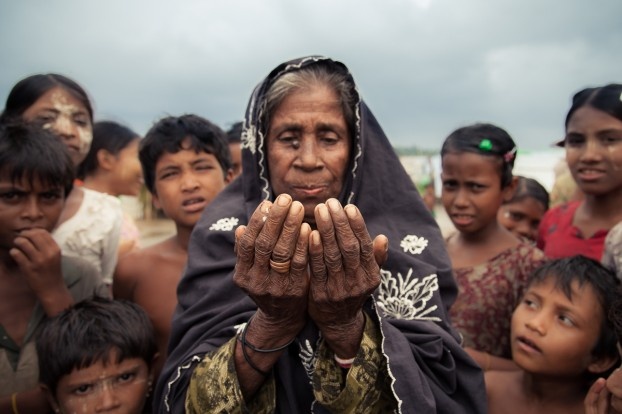
RNA - “Praise be to God, we were saved and brought to a Muslim country,” Muhammad Yunus, a Rohingya Muslim refugee, told Agence France Presse (AFP) on Friday, June 18.
“The people here are very kind and have helped us, they see Rohingya refugees as their brothers.”
The 35-year-old religious education teacher, Yunus, is among thousands of Rohingya and Bangladeshi migrants who are taking refuge in Indonesia.
Fleeing Burma in 2012 after his Islamic school was attacked by a Buddhist mob, Yunus fled to Bangladesh before starting his months-long journey into the sea earlier this year.
The Rohingya teacher was rescued off the coast of Aceh on last May along with about 580 other migrants.
Although being happy in Aceh, Rohingyas long for their families back in Burma during Ramadan.
“I miss my wife and children,” he said, struggling to hold back tears.
Over the past weeks, thousands of Rohingya refugees fled Burma and Bangladeshi to land in Malaysia, Indonesia and Thailand where they fell in the custody of respective governments.
An estimated 120,000 Burmese refugees fled to live in 10 camps along the Thailand-Burma border, recent immigration data showed.
Described by the UN as one of the world's most persecuted minorities, Rohingya Muslims are facing a catalogue of discrimination in their homeland.
They have been denied citizenship rights since an amendment to the citizenship laws in 1982 and are treated as illegal immigrants in their own home.
The Burmese government as well as the Buddhist majority refuse to recognize the term “Rohingya”, referring to them as “Bengalis”.
Rights groups have accused the Burmese security forces of killing, raping and arresting Rohingyas following the sectarian violence last year.
Despite being alone in Aceh after fleeing a refugee camp in Bangladesh, some Rohingya refugees said they are “very happy” to be in the Indonesian province for Ramadan.
“I miss mother’s cooking in the refugee camp,” Muhammad Shorif, 16, who fled a Rohingya refugee camp in Bangladesh where he had lived with his family, told AFP.
Ramadan is the holiest month in Islamic calendar.
In Ramadan, adult Muslims, save the sick and those traveling, abstain from food, drink, smoking and sex between dawn and sunset.
Muslims dedicate their time during the holy month to be closer to Allah through prayers, self-restraint and good deeds.
It is customary for Muslims to spend part of the days during Ramadan studying the Noble Qur'an.
Many men perform i`tikaf (spiritual retreat), spending the last 10 days of the month exclusively in the mosque.
Refugees like Shorif are welcomed by Acehnese who scrambled to offer support for their traumatized Rohingya brothers.
Showing sympathy with the Rohingya’s plight, people are donating food and money to offer delicious meals during Ramadan.
“During the conflict in the past, we endured suffering. But there are Rohingya who have had worse experiences than people in Aceh,” said Syamsuddin Muhammad, a 55-year-old fisherman who came to the migrant camp to donate money collected by his village.
Between 2012 and 2013, Buddhists mob attacks have left hundreds of Rohingya Muslims killed and evacuated more than 140,000 from their homes.
The violence has displaced nearly 29,000 people, more than 97 % of whom are Rohingya Muslims, according to the United Nations.
Many now live in camps, adding to 75,000 mostly Rohingya displaced in June 2012, after a previous explosion of sectarian violence.
R111/108/C/